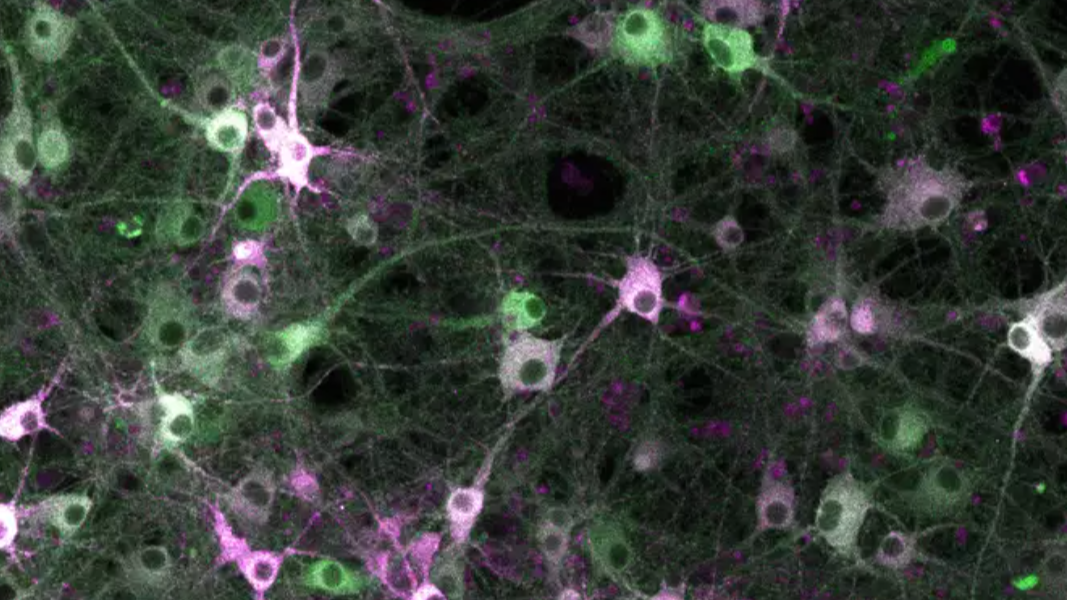Critical Pathway for rare brain tumor discovered

Choroid plexus tumors mainly affect toddlers under one year of age. Scientists at the German Cancer Research Center (DKFZ) have now been able to show that a permanently activated important signaling pathway of intracellular communication is responsible for the development of these rare brain tumors.

© Kevinmjude/Wikipedia
Tumors of the choroid plexus develop as a result of proliferation of the specialized epithelial cells known to produce the cerebrospinal fluid. Choroid plexus tumors (CPT) are very rare, but are among the most common neoplasms of the central nervous system in infants under one year of age. It is noteworthy that they can already be detected in the third trimester of pregnancy.
CPT can be categorized into the rather benign plexus papillomas and the malignant plexus carcinomas. Choroid plexus papillomas have very good chances of healing, whereas the prognosis for choroid plexus carcinomas is unfavorable. Due to their rarity, these tumors have not been well studied. “It was known that choroid plexus tumors have extensive chromosome defects, but so far no specific cancer-driving mutations have been identified that favor the development of these tumors,” says Annarita Patrizi, a junior research group leader at the DKFZ.
Together with her research group, Patrizi has now presented the results of a comprehensive study of these tumors for the first time. The researchers first compared the gene activity in chroroid plexus tumors and healthy tissue of this brain structure. In the tumors, they found a particularly high number of deviations in components of the so-called Wnt/β-catenin signaling pathway. This important intracellular communication pathway is involved in many processes during embryonic development, for example in organ formation. In adult cells, the signaling pathway is mostly inactive, but in tumor cells it can be reactivated.
Staining of tissue samples from human CPT confirmed that Wnt is constantly activated in the cancer cells. The researchers showed that CPT cells depend on Wnt activity for their survival and growth. If Wnt activity is boosted, this is enough for choroid plexus cells to develop tumor-typical properties such as accelerated proliferation and invasive potential.
Cells in choroid plexus organoids grown in the culture dish are less differentiated when the Wnt inhibitor APC is genetically switched off, thereby enhancing the Wnt signal. They show signs of transformation into tumor cells.
“The constitutive activation of Wnt in the early developmental phases of the choroid plexus apparently leads to a loss of identity of the plexus epithelium, both in mouse and in human organoids. It is conceivable that the normal development of this brain structure depends on the correct spatio-temporal activation of Wnt. Disruptions to the temporal course can impair normal development and lead to tumorigenesis,” explains Patrizi.
Due to its important role in tissue development and homeostasis, the Wnt signaling pathway is an attractive but challenging target for precision oncology. Several clinical trials are currently underway to inhibit this pathway using various strategies. A Wnt inhibitor is currently in phase 1-2 clinical trials for solid tumors.
“We were able to show that this drug inhibits cell proliferation and impairs survival in a CPT cell line,” said Patrizi. “Further research, especially on choroid plexus organoids, should help to finally find targeted treatment options for this disease.”
Hoa Ho K, Trapp M, Guida C, Ivanova EL, De Jaime-Soguero A, Jabali A, Thomas C, Salasova A, Bernatík O, Salio C, Horschitz S, Hasselblatt M, Sassoe-Pognetto M, Čajánek L, Ishikawa H, Schroten H, Schwerk C, Acebrón SP, Angel P, Koch P, Patrizi A.: Activation of Wnt/β-catenin signaling is critical for the tumorigenesis of choroid plexus.
Neuro Oncol. 2024, DOI: 10.1093/neuonc/noae176




